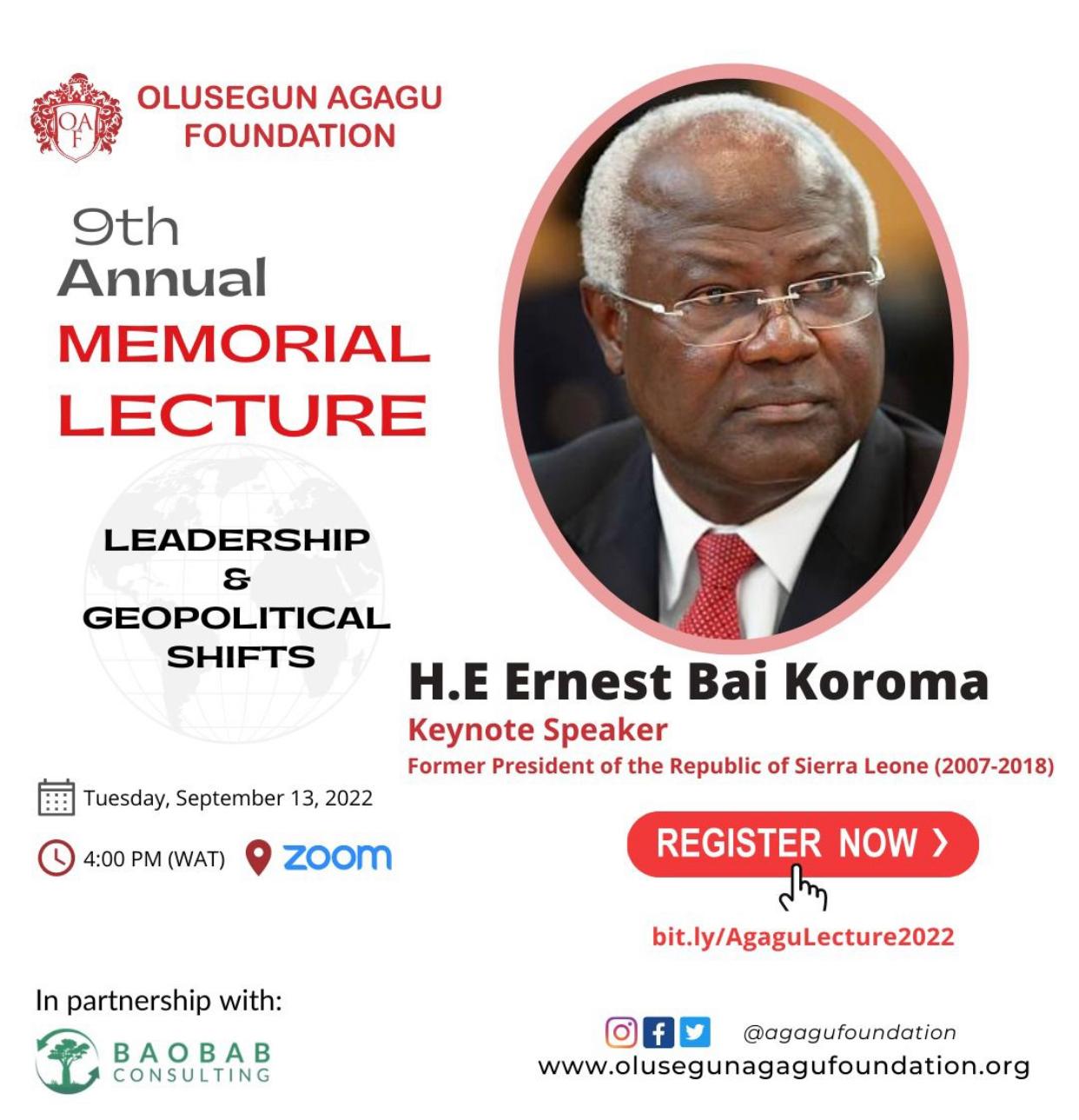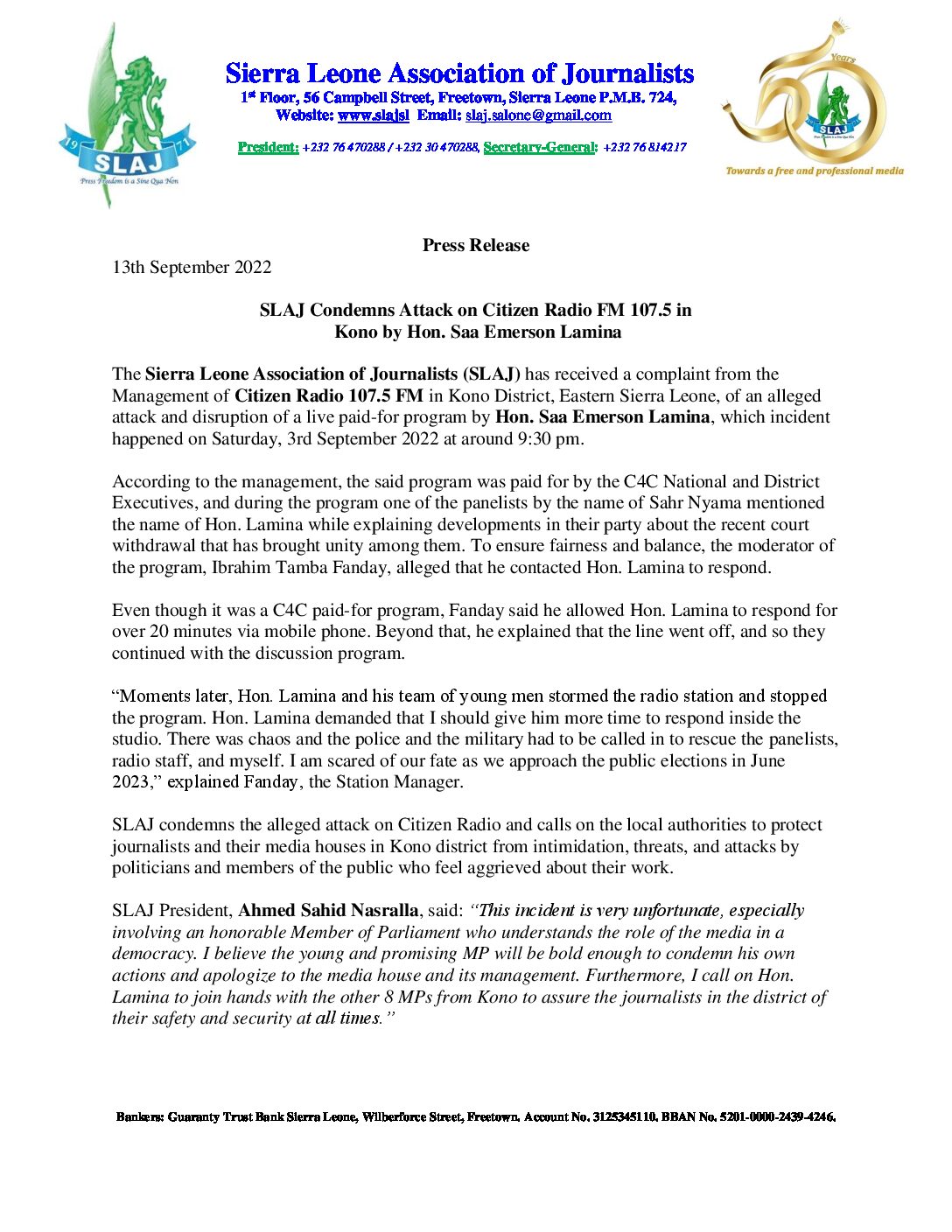FORMER GOVERNOR OF ONDO STATE, IN THE FEDERAL REPUBLIC OF NIGERIA DELIVERED VIRTUALLY ON XXX 13TH SEPTEMBER 2022
Distinguished ladies and gentlemen, it was Shakespeare who said that: “When beggars die, there are no comets seen; but even the heavens themselves blaze forth the death of princes”. He was right. But what he didn’t say is that even after their passing; the memories of great leaders blossom for prosperity because while in service, they sow seeds in the lives of those they serve.
Dr Olusegun Agagu, was an academic, a visionary political reformer, a family man whose devotion to duty was characterized by selflessness. He left a lucrative job in the oil industry for a post in the university that paid him half of what he earned as geologist in his previous employment!
This is possible for one reason only: from the outset, he wanted to serve humanity – to mold young minds and prepare them and himself for the development challenges ahead of his nation. That is the very essence of leadership – to have a vision, to help others do well so that society could be positively impacted more widely and more meaningfully.
Someone once said that “being a leader is no easy task — it takes hard work, courage and risk-taking. Being able to find solutions, solve problems and make things better are vital components to effective leadership.”And that is why, ladies and gentlemen, I am immensely proud to be associated with this memorial endeavour to honour Dr Olusegun Agagu, former Governor of Ondo State, for his outstanding leadership and dedication to service.
Such outstanding leadership is so badly needed at a time like this when geopolitical shifts are creating both uncertainties and opportunities depending on how, particularly leaders, appreciate and respond to those dynamics.
The literature indicates and we are witnessing the maturing of a new superpower (China). And while Russia is becoming more and more assertive, a number of ‘middle powers’ from across the Global South (India, South Africa, Indonesia, Brazil, etc.) are emerging. The transition from a unipolar world, dominated by the US since the end of the Cold War, to a new multi-polar order incorporating China brings with a whole range of uncertainties. China is no doubt behind the US in its capabilities as a major power, but is certainly the leading emerging or developing country.
The ramifications are all too clear. The institutions, rules and norms of global governance that evolved in the post-war era are in crisis. The COVID-19 pandemic has amplified declining international trust and pessimism about prospects for international cooperation.
The crisis occurred at a time when China’s rise is at full throttle, assertive and seeking a greater leading role in globalisation and multilateralism. At the same time, the United States (US) appeared, at least in the Trump era, to have abandoned its leadership in important areas of international cooperation, including the world trade system, action against climate change and cooperation on public health.
For instance, at the peak of the health crisis the US signalled its intention to withdraw from the World Health Organisation (WHO) and both China and the US engaged in a war of words. The global public health crisis brings into sharp focus not only the importance of the social and political determinants of public health (with widely different public health outcomes evident between differently governed states), but also the importance of geopolitical threats to international cooperation in the face of an international crisis.
Away from the global health crises, China has demonstrated aspirations for a leading role in multilateral institutions, from United Nations (UN) peacekeeping to the World Trade Organisation (WTO), and in regional initiatives, such as the Regional Comprehensive Economic Partnership (RCEP). China has also been the architect of a number of new international initiatives and multilateral institutions that may provide a clearer indication of its goals.
The ramifications of Brexit on UK/EU economic power and the assertiveness of Russia and how the war in Ukraine appeared to have upended the global economy and supply chain are clear pointers to a shift in global political and economic influence.
President Biden is striving to reassert America’s influence but the damage has already been done with China and Russia jealously guarding ground gained when Trump’s America abdicated.
In view of such increasing Chinese and Russian influence and assertiveness, a critical question arises as to how China will act as a major power in a future, uncertain global order.
This necessitates a re-thinking of how the global community is: should be governed. One of the important lessons which can be drawn from this is that well managed nation states also hold the levers of power for enforcing measures to protect health as well as to stave off economic collapse. This is also true for Africa, despite being the least developed region in the world, the global geopolitical shifts present Africa an opportunity to supercharge its economic and social transformation, as well as enhance its resilience through diversifying its partnerships. Who would ever imagine that Europe would seek trade relations with Nigeria for gas? Several other opportunities exist in agriculture for instance, which Africa could capitalize on to grow its economy and develop our nations.
Simply put, Africa has options; but it must also choose wisely. It is easy to complain and tear down what exists. The leadership challenge of the day will be defining and then realising a new international order for global cooperation and governance. Moreover, the digital age is now getting comfortable, changing the way we engage with each other and with our governments. We must safeguard this space, to protect people’s privacy, their livelihoods, and their welfare.
Societies must ensure that we equip people to identify and handle misinformation – (inaccurate representation or interpretation of information) and disinformation- (purposeful manipulation of facts, and even use of fictitious material to change opinions and/or behaviour). This is especially important during political moments such as elections.
Interdependence is critical, but a balance between security and inter-dependence is emerging. It is an important moment to re-calibrate how we define key concepts such as sovereignty, security, and resiliency.
There are short-term and longer-term risks and challenges that we are aware of. Climate change, is an example, energy is another. Already the prognosis is not that gloomy, democracy is coming of age in Africa. Yes, there are some reversals particularly in West Africa resulting in a resurgence of military coups but there have been commendable responses within the region and across Africa that the era of dictatorship and military is over.
Also, there are fewer conflicts now on the continent than ever in modern (post-independence) African history.We have an increasingly younger, educated, dynamic, and expectant population – ambitious and keen to engage. And while we are witnessing the generational shift from the last of the independence leaders, and the emergence of leaders who were born in a free Africa, Africa is increasingly urban.
The prospects abound and could be seen in the diversification of African partnerships with the rest of the world; the proliferation of Africa Summits (India, Japan, Brazil, Russia, etc,) and, of course, China’s growing influence in Africa with all of its positive and negative impacts
To successfully navigate through these new realities and harness the opportunities requires the right set of leadership. Intellectuals like to argue about leadership: is it a set of competences or is it an effect?
It is true that one can develop many of the competences we look for in our leaders (oratory, strategic thinking, negotiation and communication skills, management skills, etc.). However, if those skills are not put to positive outcomes for people, then can this truly be referred to as ‘good leadership’? In other words, leadership is not about popularity. It is about conviction, resilience, and hard work. It is no longer about power, about grand speeches and sound bites, but more so, it is about delivery and transformation. This is because as individuals become more and more empowered, they expect more and more from their leaders.
Therefore, the role of leadership in navigating change (either resisting, or embracing) requires the mobilisation of resources and people for positive impact. And make no mistake, transformation is hard but what is important for the leader to bear in mind is that there are always winners, and there are always losers.
For the change to be positive, the winnings should be maximised and shared out as widely as possible. The impact on the losers should be minimised, and some of the winnings should be set aside to support losers to find decent and dignified livelihoods in the new reality.
So yes, it is valid for people to look up to politics for leadership and we must continue to do so, but also recognise that politics has always been about negotiation, compromise and innovation. Leadership is needed to remind us that our communities are made up of a diverse range of stakeholders and common, but differentiated values and means but that it takes all of us for any of us to succeed.
Looking ahead
Africa – The continent, its countries and its peoples – are guided by a set of principles and aspirations that have been recorded in National Visions and the Agenda 2063. They are also guided by election manifestos. The task at hand is for the leaders of today and tomorrow to build on the work from the leaders of yesterday, and navigate the tumultuous shifts taking place to deliver on the aspirations set out by the people behind them.
But this requires the current leaders to think about their purpose in the way Einstein suggests they should: by recognizing that they are there, not for themselves, but for others.
I thank you all.













